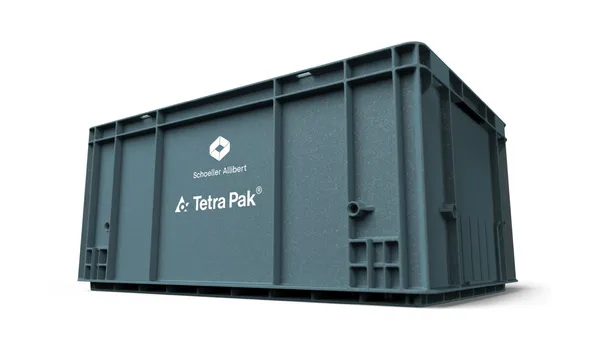Dive Brief:
- Oregon's Department of Environmental Quality (DEQ) has issued disposal concurrences to 14 companies as of Feb. 21 due to recycling market challenges. The most recent ones have been granted to Garten Services, Prineville Disposal and Waste Connections, for a range of materials.
- The DEQ has been holding regular stakeholder meetings on this topic for months, and the latest was a multi-hour affair hosted in Portland. So far, the Metro regional government hasn't reported the same issues as its smaller or more rural neighbors. In a recent post, recycling manager Matt Korot said "there are reasons for optimism" and urged local residents to continue recycling as usual — with an emphasis on minimizing contamination.
- Waste Connection is reporting an 85% contamination reduction for residential recycling in coastal Coos County following two months of strict enforcement, as reported by The World. This has allowed the company to send material to new markets and helped avoid program limitations. Commercial and multi-family recycling contamination remains an issue that could soon lead to higher costs.
Dive Insight:
Oregon was one of the first states to feel the effects of China's scrap import policies and has continued to struggle with them in the months since because of heavy reliance on export markets. Sen. Ron Wyden even co-signed a letter to the Chinese ambassador last month asking for relief.
A variety of factors have led to these circumstances and make the state more susceptible than others, including the recent closure of local paper mills, the fact that shipping from ports is often cheaper than sending material inland and an older MRF infrastructure that may not be able to meet new contamination standards.
These factors and many others have resulted in material piling up and DEQ approving the disposal of at least 6,107 tons of recyclables as of Jan. 31.
While many parts of the state may be in the same position, the responses from local governments have varied, due in large part to what their service providers think. This has meant curtailing drop-off programs in a few small municipalities, and talk of doing the same for some curbside service too.
Another common thread has been to limit the list of accepted materials in the hopes of reducing contamination. The Oregon Refuse & Recycling Association (ORRA) has released a list suggesting that local governments drop aseptic packaging, shredded paper, glass, scrap metal and mixed plastics. Rogue Disposal has adopted this approach in multiple municipalities.
Though based on a report from the Feb. 15 DEQ meeting in Portland, and Metro's recent post, it doesn't appear that the state's most populous area will be following suit. That post recognizes some material may already be going to landfills on a temporary basis, but defends the region for having a strong recycling culture and a relatively low contamination rate.
While it's true that habits can be hard to change, and consumer confidence should be preserved as long as possible, some wonder whether the status quo approach can last. As seen recently in Boise, ID, figuring out whether to preserve environmental values for a higher price or recognizing that program changes are needed is a hard but necessary conversation.
If consumers are allowed to continue recycling as usual, without even the contamination penalties that have shown early success in Coos County and elsewhere, more material could pile up. This has caused a much more dire tone among some in Oregon's recycling industry, with one recently describing it to Waste Dive as a "house of cards," than some local governments may be communicating to their residents.













